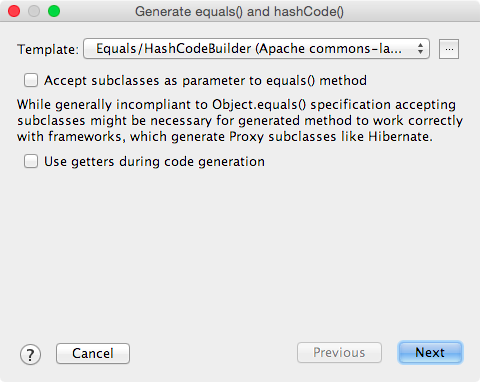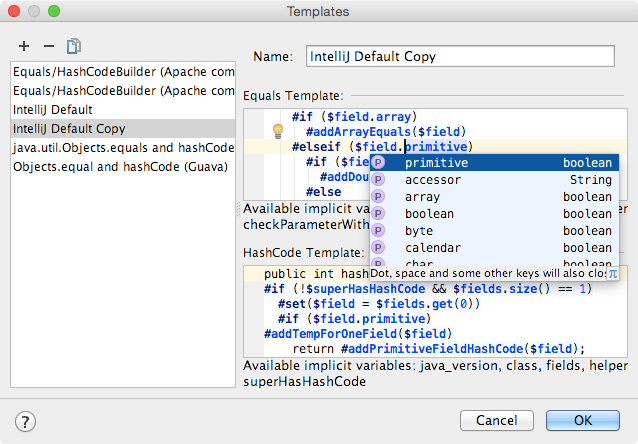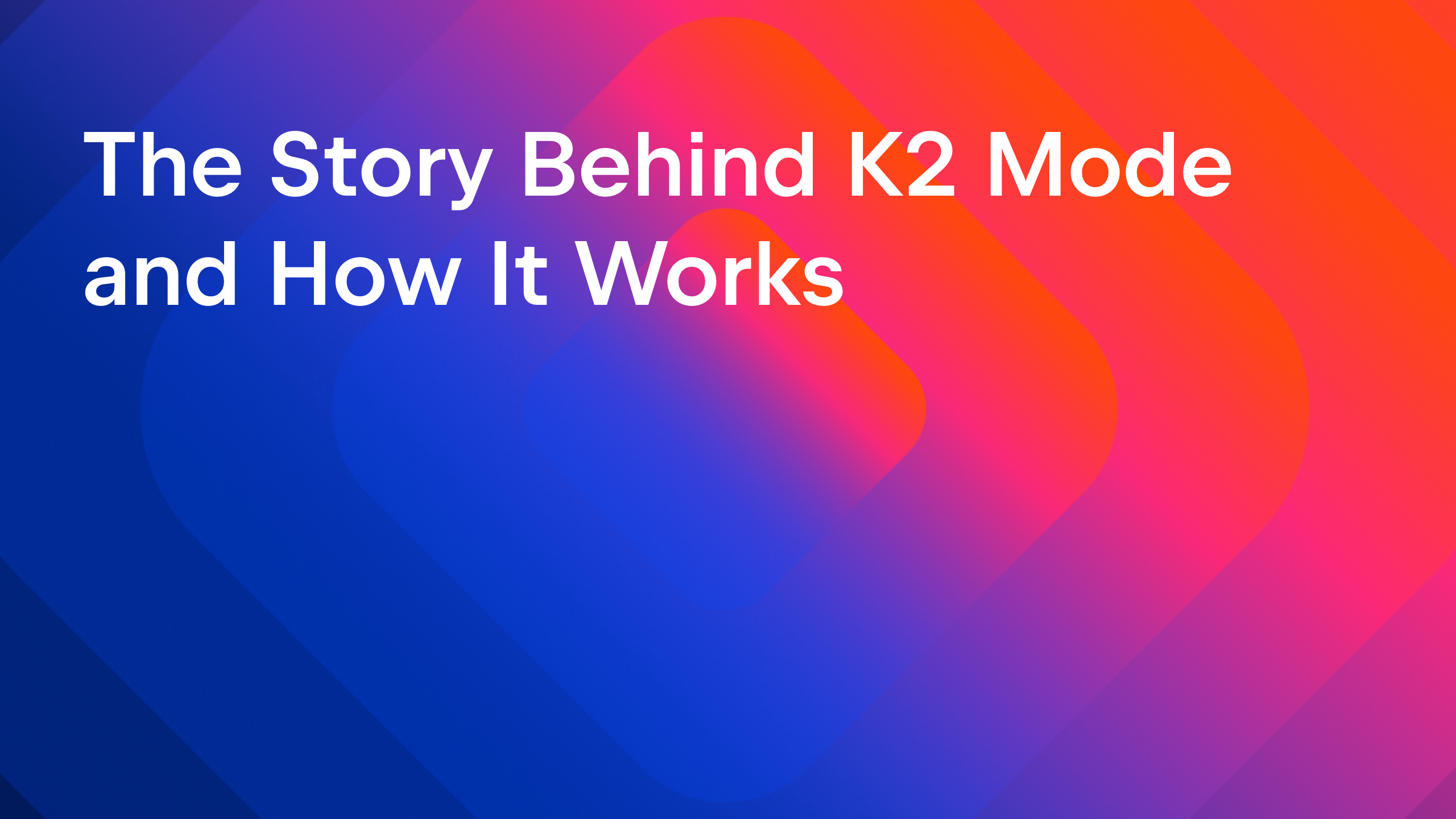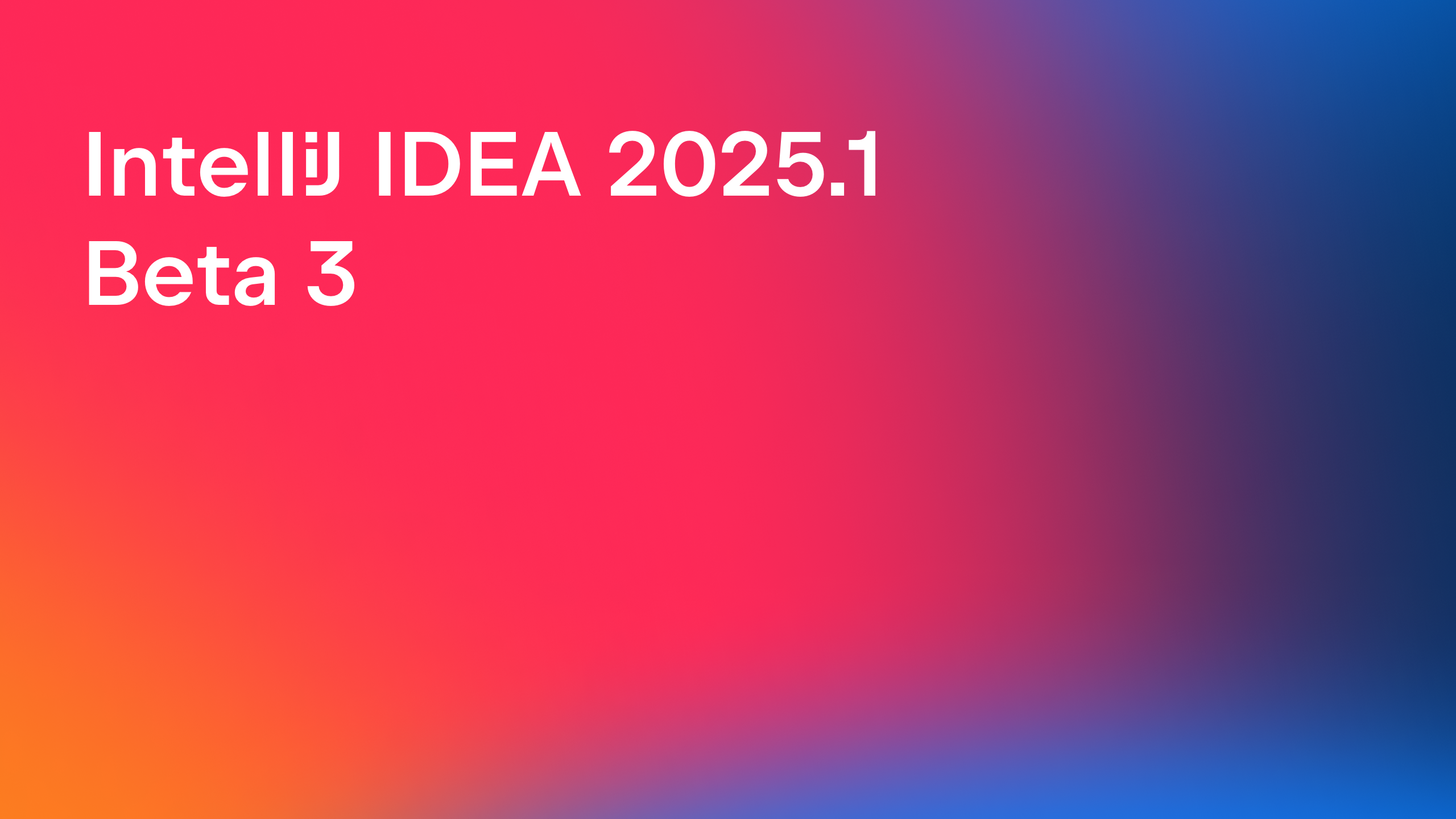IntelliJ IDEA
IntelliJ IDEA – the IDE for Professional Development in Java and Kotlin
IntelliJ IDEA 14.1 Ships with Nextgen of Code Generation
IntelliJ IDEA already has impressive code generation capabilities: it can create getters and setters, equals(), hashCode(), toString(), and other methods, some of which are really simple to generate, and some are quite not.
That’s why the toString() method generator included the support for Velocity templates that could be modified and tailored to your needs. In IntelliJ IDEA 14.1 we’re extending this support to all other generated methods.

To fully support this new feature, the Template Editor has been upgraded with complete Velocity coding assistance.

Note that this particular editor improvement is only available in the Ultimate Edition, because it requires Velocity plugin, but everything else works well in Community Edition.
After the code has been generated, IntelliJ IDEA will make it clean and good-looking with automatic application of code style, Code Cleanup, and adding @Override annotations where needed.
If you’d like to give this feature a try, grab the latest IntelliJ IDEA 14.1 EAP build, and share your feedback with us on our discussion forum and in the issue tracker.
Develop with Pleasure!
Subscribe to IntelliJ IDEA Blog updates








